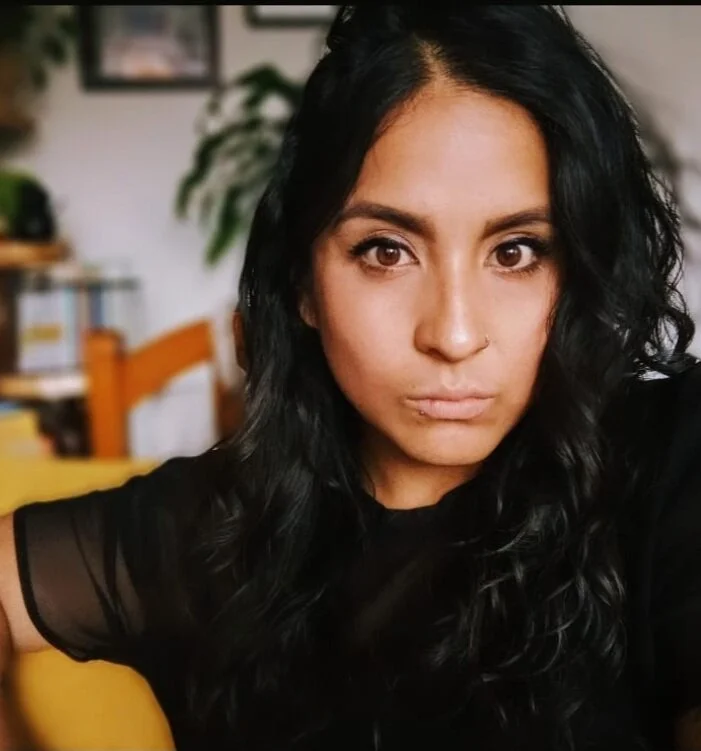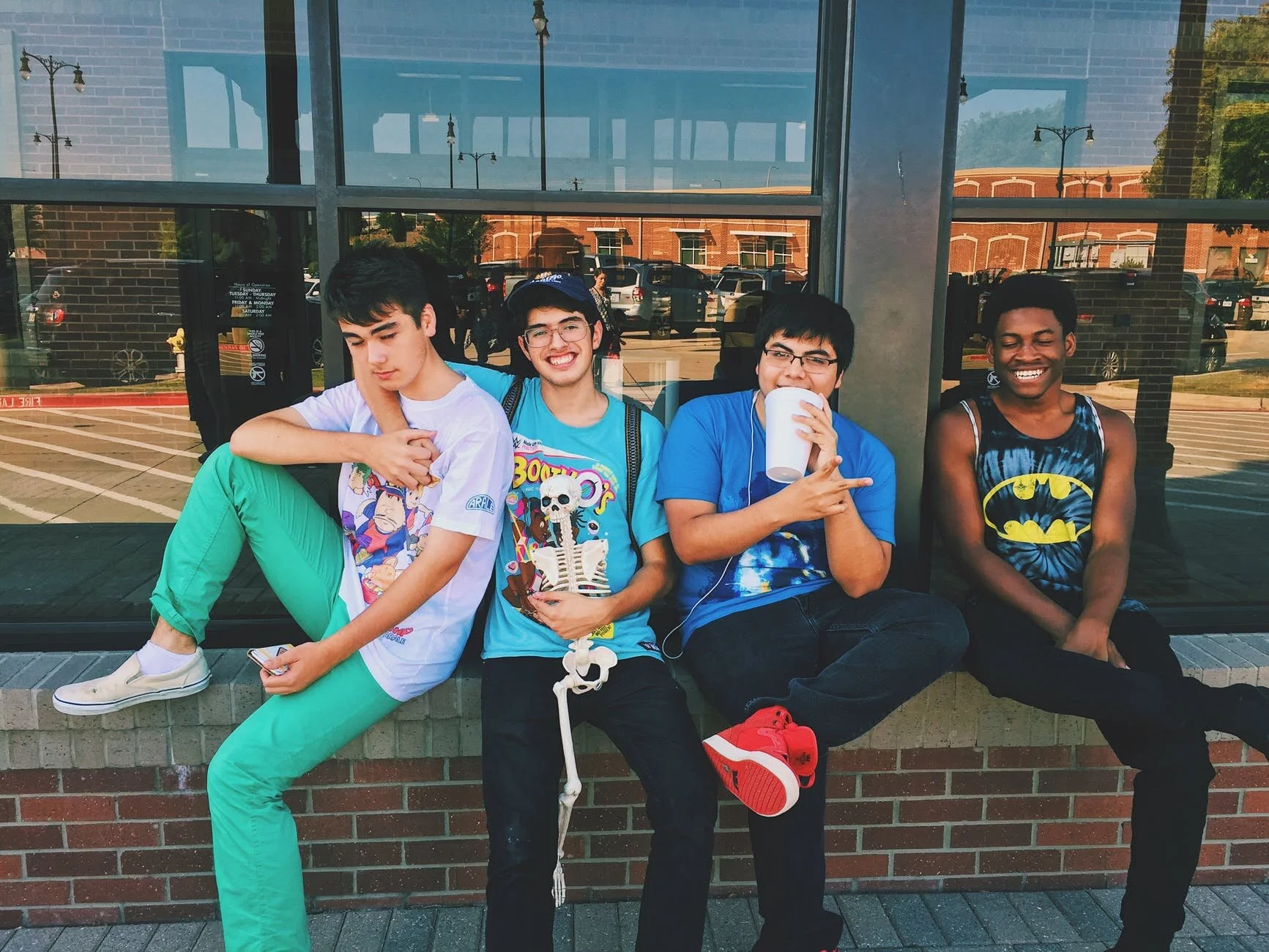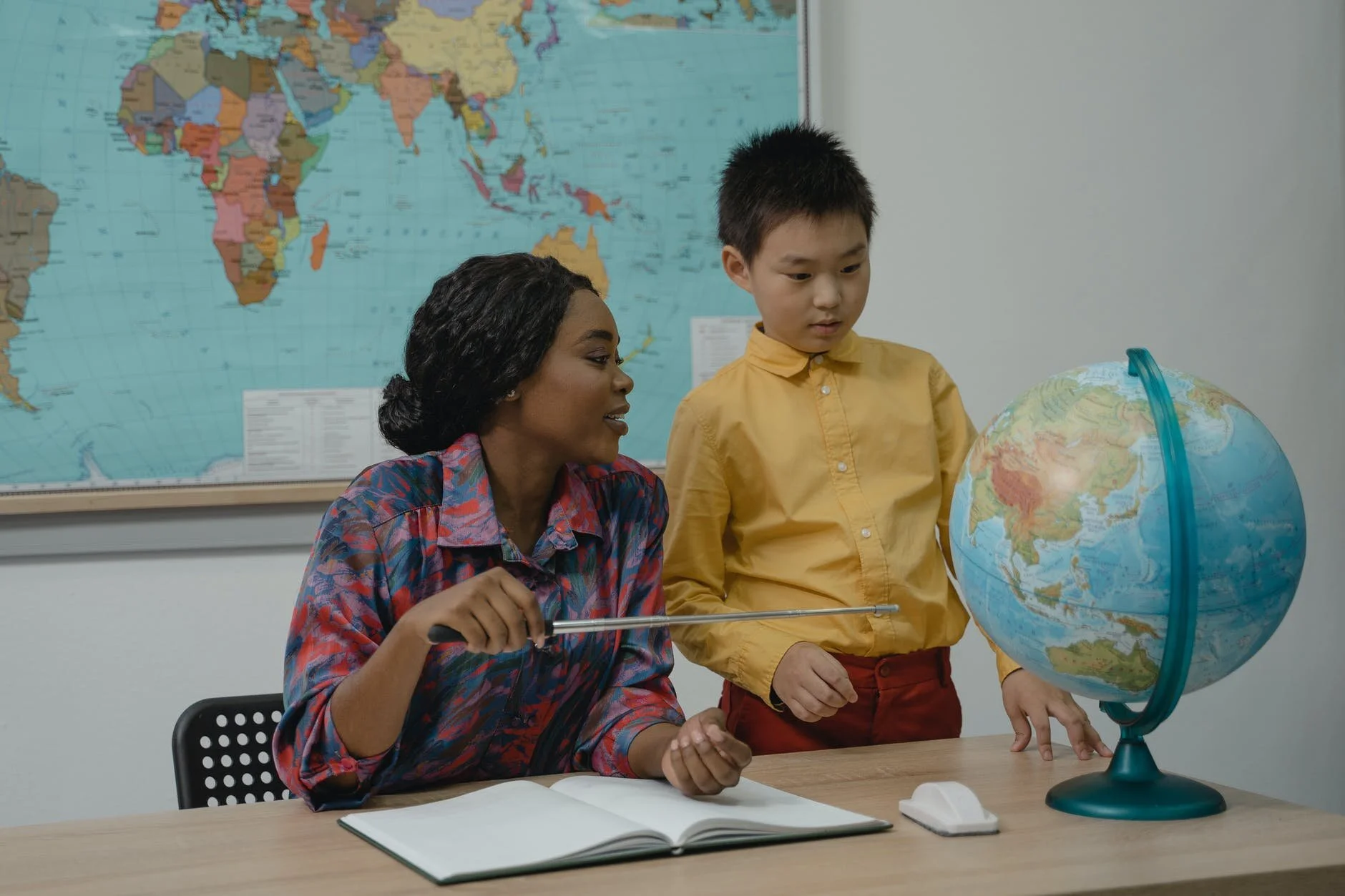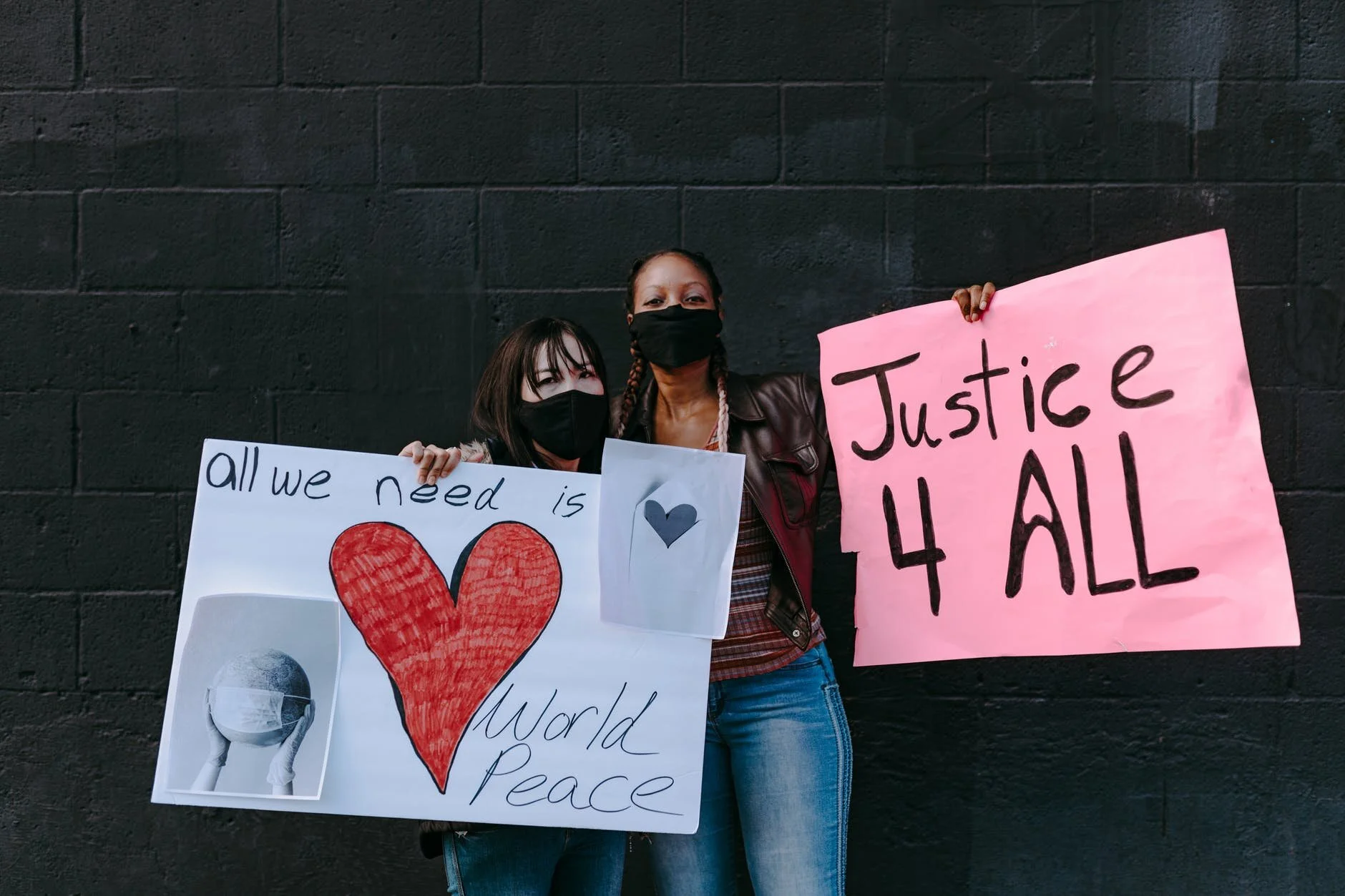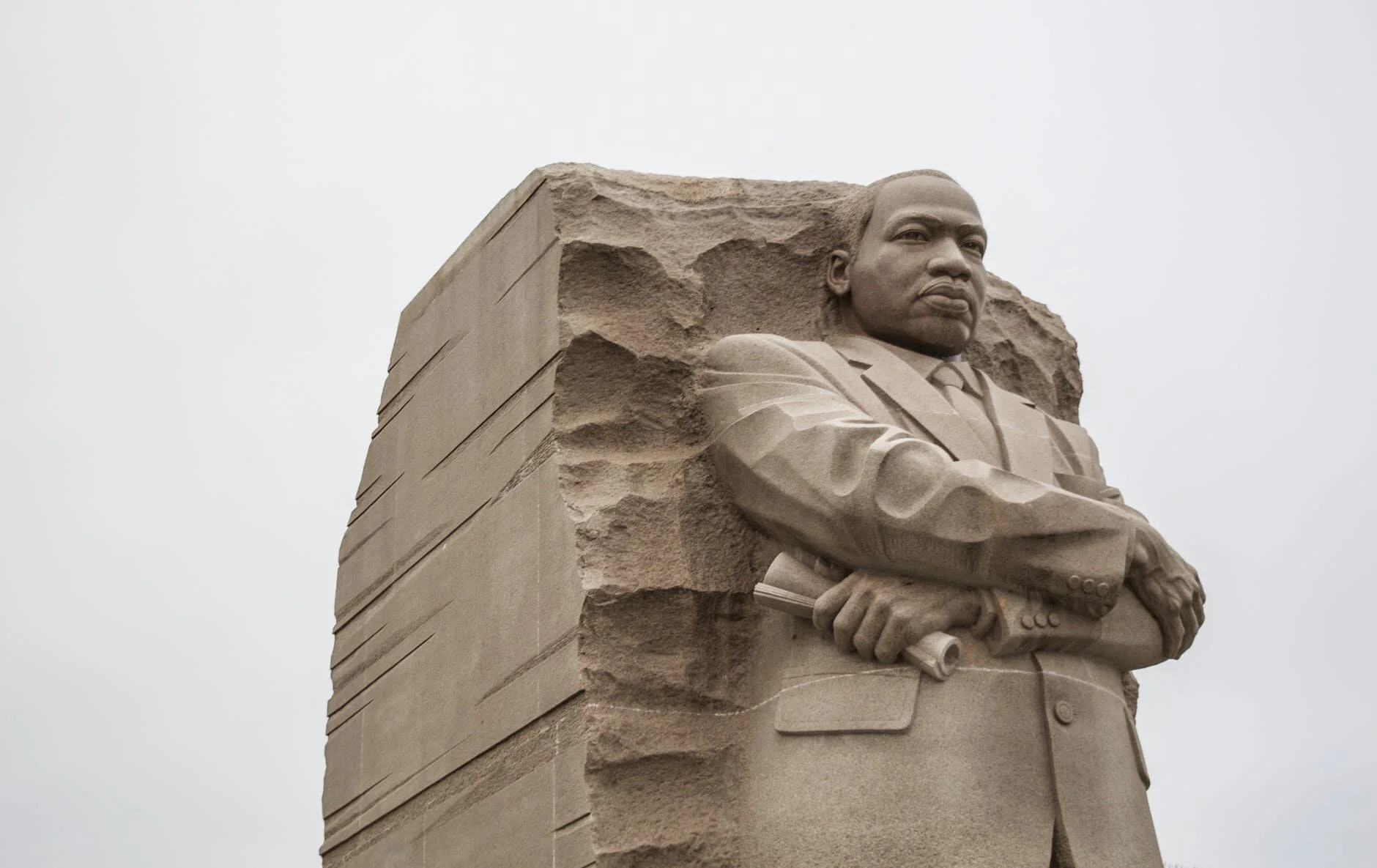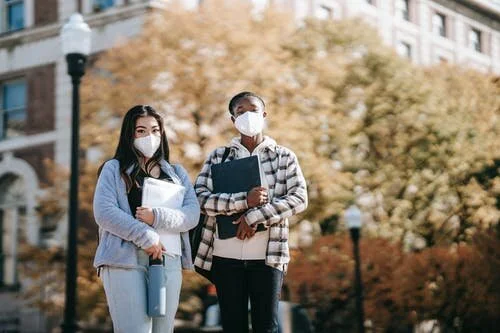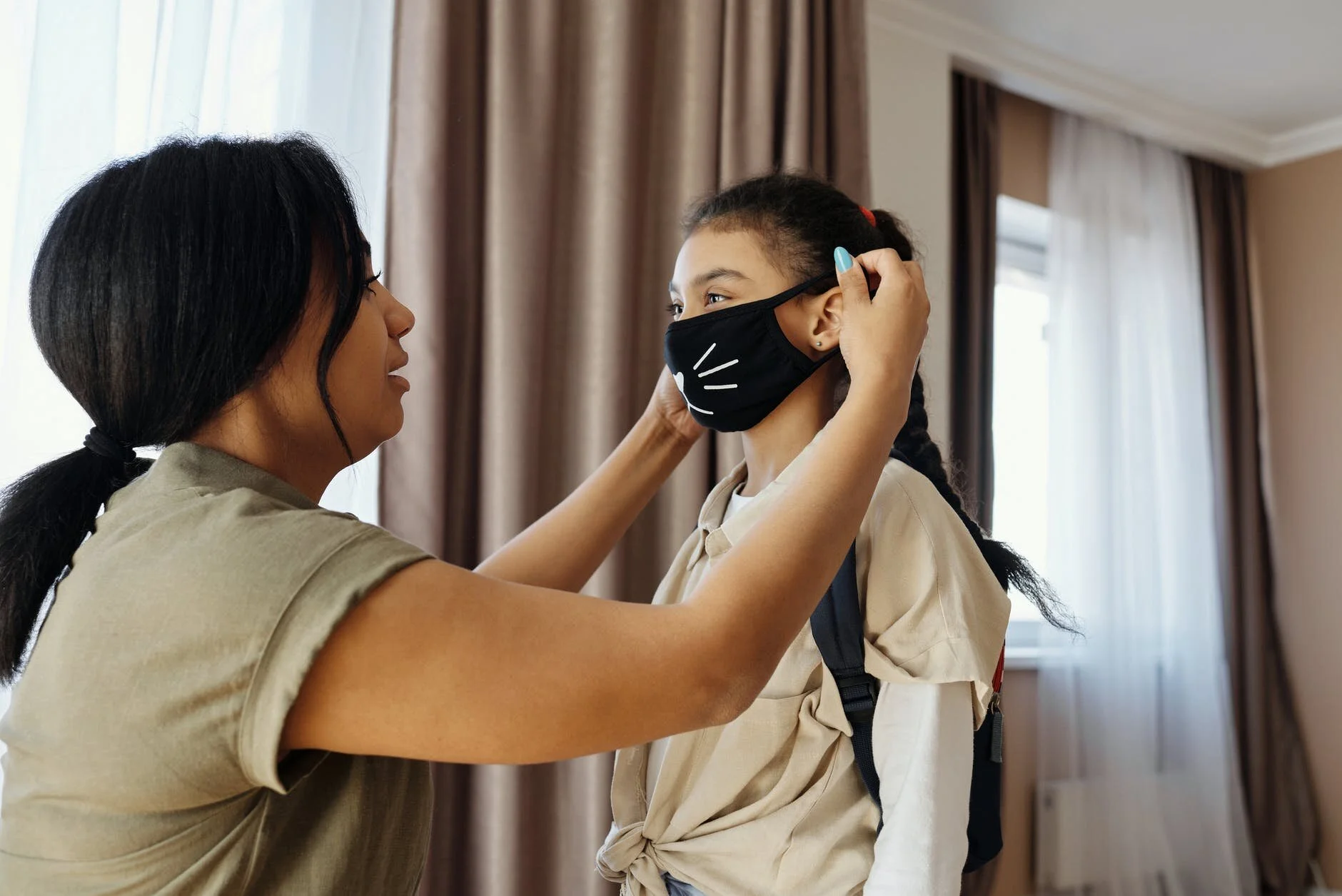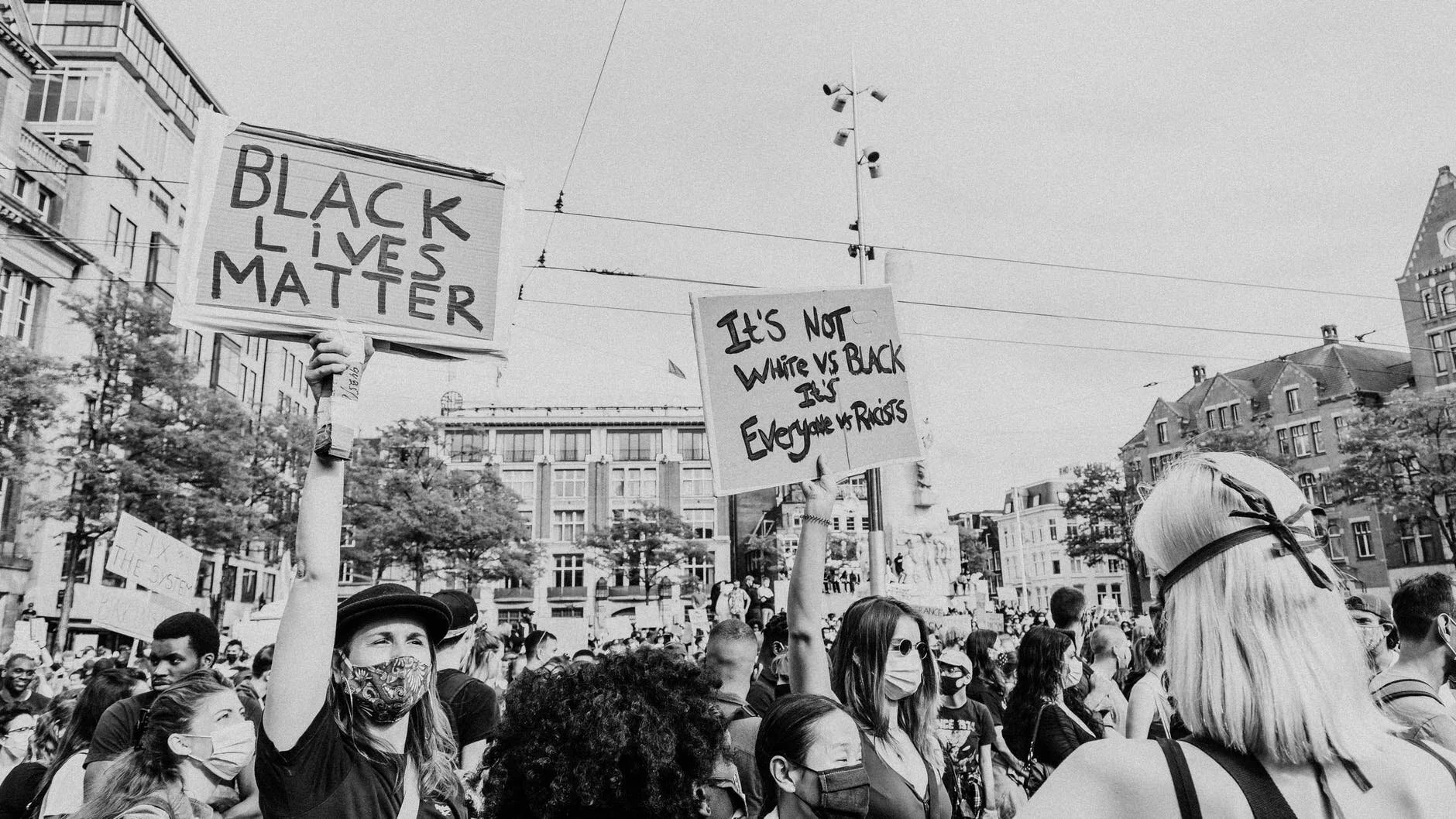Ep. 134: Back to Life, Back to Reality
EQ: What concerns, questions, ideas, or fears do you have for the upcoming school year?
In this episode of IWL, Hope and Megan recount the last few years in education. From ”we think the pandemic is over but wait, surprise it’s not” to ”we’re back to normal” to ”Pandemic is over now…maybe, we think.” They’ both excited and nervous about the return to school this year. There are a wide range of contextual factors shaping the upcoming school year. Their discussion centered on how teachers might “protect your peace” this school year.
Previous Back to School Episodes:
Do Your Fudging Homework:
Megan: evaluate your situation, cut ties with the negative folks, prune your circles or get involved in something that inspires you.
Hope: Belonging Through a Culture of Dignity: The Keys to Successful Equity Implementation Cobb, Floyd
Ep. 133: Tiktok Ya Don't Stop
EQ: To what extent would we miss out on trivial nonsense if we didn’t have Tiktok Summers?
In this episode, Hope and Megan catch up with the O.G. white lady, Annie Jansen. After an update of her journey to being an electrician, they take on the ins and outs of Tiktok. We’re sure you’ll learn a little about who to follow, how to prevent echo chambers, and some of the weird nonsense on the tok.
Referenced in the show:
Pink Sauce (Chef Pii); Taste of Home
Do Your Fudging Homework:
Expand your Tiktok bubble
Ep. 132: Spin the Bottle Elections
EQ: Do the results coming in from the primary elections inform what is to come in November or are politics in the United States a cluster and nothing makes sense any more ever? And what, if anything, can we learn from what happened?
Aug 2 was the primary elections, gearing up for the Mid-Term elections in November. Some interesting, disheartening, and hopeful things took place. Today, Hope and Megan focus on what happened through the lens of why and how we can use that to propel us forward into November in order to see the results that we want.
Related Links:
Key Washington primary 2022 election results | The Seattle Times
Abortion rights shockwave rocks the midterms and 3 other takeaways from primaries
Your Fudging Homework:
Find 1-2 people who aren’t registered or don’t usually vote—bring them along
Ep. 126: How and Why the Baddies Are Winning
Essential Question: How is the right leveraging social and economic conditions to pass such $h!* legislation (aka how and why are the baddies winning)?
Across the country bills are being passed that is limiting/censoring educators more and more. We have seen this with the CRT debate, Book Banning, and today’s topic, anti-LGBTQ+ legislation. In today’s episode we discussed the high profile cases everyone should be paying attention to but also why initiatives in smaller states matter too. This whole episode deserves one giant shame bell rung from start to finish.
Resources mentioned in the episode:
Florida “Parental Rights in Education” bill, aka “Don’t Say Gay” bill
Texas Anti-Transgender Directive
Do Your Fudging Homework:
Megan: Educate yourself about what’s happening & check out the links above. Donate money to organizations who are fighting these bills. Contact your members of Congress!
Hope: HCR ad “Let Us Play” will bring tears to your eyes; Facing History
Ep. 116: Our Role in Upholding Anti-Blackness
EQ: How are white supremacy and anti-blackness a result of the living legacy of colonization and what does it mean for us today?
Guest: Alysa Pererras, Equity, Inclusion and Justice Consultant and Researcher in Medellin, Colombia.
Hope and Megan return to an important conversation about the presence of anti-Blackness in our society. This time, they’re exploring its presence in relation to colonization. They’re joined by DEIJ consultant Alysa to discuss its roots, relationship with White Supremacy and everyone’s responsibility to dismantle the systems of oppression around them. You can follow Alysa on Twitter.
Related Resources:
Do Your Fudging HW:
Hope: Hire Alysa or at least attend a workshop she is facilitating!
Megan: Read the article “Call it what it is: Anti-Blackness”
Alysa: Shout out to Audre Lorde, Alan Palaez Lopez
Ep. 115: Confessions of an Ed Policy Insider
EQ: Do the Nov 2 election results give us a preview of how the campaigns against education will impact elections/politics as we move forward in the United States?
Guest: Sandy Boyd Sandy is the CEO of Seek Common Ground (SCG), an organization committed to empowering independent state and local organizations advancing equitable solutions with and for children, families and communities.
Sandy shares with listeners the impetus for starting Seek Common Ground and some of the work they are currently engaged in. A majority of the conversation centers on the politics of education and how policies have really not changed over the years. We theorize about the impact of Covid on student learning and if the pandemic was a catalyst for the fight around CRT (note: this was recorded prior to the Mom’s for Liberty bounty nonsense in New Hampshire--white rage anyone?).
References in the show:
What happened in Last Nights Elections, and what does it mean for Democrats?
Did Critical Race Theory Really Swing the Virginia Election?
Aaron Rodgers and his idiotic interview where quoted MLK to justify not getting vaccinated
Texas House Committee investigating (state Rep Matt Krause) books on race & sexuality (or whatever students have “discomfort” about)
Do Your Fudging Homework:
Megan: Read the articles linked in the show notes & pay attention to local politics.
Hope: Check out the work of Seek Common Ground & if you have a chance to help partner with them, use it.
Sandy: Check out what’s happening locally including school board elections
Ep. 113: Equipping Young People To Lead
EQ: How are young people around the world being equipped to address important social issues of our times?
Guest: Alisara (Ally) Christensen is from Bangkok, Thailand and the Jump! Foundation
Ally shares her experiences growing up in international schools and her passion for youth development. The Jump! Foundation offers a range of hands-on, experiential workshops to empower and equip students for exploring social issues, and specifically increasing their awareness on diversity, equity and inclusion. Although surprising for some, these conversations are somewhat new in international education. However, with access to technology and social media conversations about race and justice are now coming to the forefront of the conversation. We also explore the ever-evolving language around these issues of opportunity access. We finish the episode discussing the importance of having youth be the drivers of the conversation and bringing them along for the work rather than doing the work of change for them.
Resources:
Think Again by Adam Grant
Racial Equity Tools (Youth Activism & Intergenerational Work)
Dare to Lead by Brene Brown
Do Your Fudging Homework:
Hope - Read the sources above
Megan - Change or Die, Alan Deutschman
Ally - Any Podcast with Brene’ Brown, Adam Grant, Dare To Lead - Aiko Bethea
Ep. 111: Back to School, Go To School Board Meetings!
EQ: How can we better understand the anatomy of a school district in order to access levers of power & be more effective advocates in our local schools?
Hope and Megan and joined by 2 special guests, Bethany Rivard and Wendy Smith. Bethany is an award winning English Language Arts & Theater teacher at Fort Vancouver High School. Wendy is a classroom teacher and on the Vancouver Public Schools Board director. In this episode, they discuss the anatomy of a school district including who you should reach out to when you have concerns, the best way to connect with your school board members, and why you should attend and participate in school board meetings.
If you’re interested in running for local office reach out:
Do Your Fudging Homework:
Hope: Washington State School Directors Association (WSSDA) to get involved
Megan: Be mindful of who is running for school board. Listen to Citizen Tacoma episodes
Bethany: Attend your school board meetings! WA State Boards & Commissions
Wendy: GO TO THE SCHOOL BOARD MEETINGS!
Ep. 109: Back to School, Mail Bag Edition
EQ: What concerns, questions, ideas, or fears do you have for the upcoming school year?
Today’s episode is the start of our Back to School series. First, we’re going to discuss listeners' ideas, concerns, questions, and fears shared with us. We appreciate everyone who took the time to send us your thoughts.
Then, we’re going to record an episode specifically targeting educators returning to the classroom--we’ll dig into creative ideas and ideally leave you with some hope & inspiration for the weeks ahead. Lastly, we’ll dive into the anatomy of a school district and levers of power with a guest who is a teacher, union activist, and school board member! We’re really excited for the episodes ahead.
This conversation is an exploration of what “normal” school years mean and what our listeners are thinking about as we head into fall. While we may not be full-blown quaranteaching, we are returning to school this fall with a pandemic hovering over our shoulders.
Related Sources:
Gov. Desantis signed executive order that would strip schools of funding for imposing mask mandates
Gov. Inslee requires students & staff to wear masks this fall
A special thanks to all our listeners who contributed to this conversation via Slack, Twitter, and Facebook. We appreciate your engagement!
Ep. 106: On CRT with Dr. Lee-Ann Stephens, 2006 MN Teacher of the Year
EQ: Is Critical Race Theory currently being taught in K12 schools, and if not, should CRT curriculum be adopted in k-12 education?
For part 2 of our conversation we are excited to be joined by our guest Dr. Lee-Ann Stephens, Minnesota Teacher of the Year 2006, has been an educator for 31 years with K-12 teaching and leadership experience. She currently serves as a teacher on special assignment with the St. Louis Park Schools in Minnesota, as the High Achievement Program Coordinator and the advisor for Students Organized for Anti- Racism. She is an affiliate with Pacific Educational Group: Courageous Conversations about Race, an Advisor for Integrated Schools, and she has been appointed by Governor Walz to the Education Commission of the States, a partner with education policy leaders to address issues by sharing resources and expertise. Follow Dr. Stephens on Twitter: @MNTOY2006
In this episode, Dr. Stephens defines critical race theory and delineates the five tenets of CRT:
Permanence of Racism--so embedded in society it seems natural & is often invisible
Counter Storytelling--sharing stories that are counter to the dominant narrative
Interest Convergence--Civil Rights victories occur when White People benefit. In other words when interests converge.
Critique of Liberalism--challenges the notion of neutrality, objectivity, colorblindness, & meritocracy
Whiteness of Property--According to legal CRT scholar Harris, property functions on 3 levels: the right of possession, the right to use and the right to allocate. Furthermore, the right to transfer, enjoy and exclude.
We then discuss whether or not CRT is currently being taught anywhere in the US in K-12 classrooms how some folks confuse critical race theory and culturally responsive/reflective teaching and whether or not it should be.
Check out Dr. Stephens’ Writing & Podcasting:
Champagne & Real Pain:
🥂Fight for Honesty in Education
👎🏻Shame on these people: Linda Ader, Erick Johnson, and David Weinberg who are running for Peninsula SD No. 401 on false narrative about CRT & comprehensive sex education
Do Your Fudging Homework:
Hope: Go back and listen to our Part I episode & also check out Nerd Farmer’s conversation on this topic.
Nerd Farm Podcast: On the Critical Race Theory Moral Panic
Crossing Division Podcast: Let’s Talk about CRT in Local School Board Campaigns
Megan: Check out Dr. Stephens’ writing that is linked in the show notes.
Dr. Stephens: No matter what they look like, have the conversations.
Ep. 105: Critical Race Theory & Other Things White People Don’t Understand
EQ: How is the panic around Critical Race Theory indicative of white nonsense and why has it become such an easy target for Conservative Politicians?
In this episode of IWL, Megan and Hope dig into the kerfuffle that is the recent critical race theory (CRT) debate. Built on nonsense and white fragility, CRT is now a phrase donning the lips of many a well-meaning but poorly informed person. Armed with fear and misunderstanding, some communities are demanding school boards institute bans and establish parameters for how teachers teach history (and other related topics). From “why are folks mad” to “are we actually teaching CRT in our classrooms”, these IWLs share their own understanding of the topic and where they are still learning, growing or feeling confused.
Referenced in this episode:
The NYT 1619 Project Is Reshaping the Conversation about Race
"Spontaneous parent campaign" against Critical Race Theory in schools being organized by DC lobbying firm, known for past astroturf campaigns
If Critical Race Theory is Banned, are Teachers Protected By the First Amendment?
Do Your Fudging Homework:
Hope: Citizen Ed/Nate Bowling Interview: What CRT bans mean for teachers;
Katy Swalwell podcast Our Dirty Laundry
Ep. 103: Meet Us at the Corner of Evangelical Fundamentalism & Tiktok
EQ: To what extent should we pay attention to the intersection of white supremacy, religious fundamentalism, crazy, and Tiktok?
In this episode of IWL, Hope and Megan delve into the weirdness that is the intersection of Tiktok, the Far-Right and Evangelical Fundamentalism. Is the vaccine a mark of the beast? Is the Hunger Games hand signal a camaraderie between anti-vaxxers? How did “persecution culture” become a thing? How are private social media companies limiting or banning the spread of misinformation and lies?
Lastly, these IWLs try a new segment to honor the end of the school year and #throwback to HS yearbooks--School Year Superlatives!
Related Resources:
Do Your Fudging Homework:
Hope: For a good laugh check out Kathleen Cameron, @kathdoestiktok
Megan: Go watch this very Northwest persona, Bunny the Dog
Ep. 97: Make Space for Intersectional Conversations This Women's History Month
Essential Question: How can we intentionally highlight, honor and celebrate “forgotten” women in history (WOC, Trans women, Indigenous, etc.) during Women’s History Month
In this episode Megan and Hope reflect on the lessons they learned during Black History month and discuss the origins of Women’s History Month in the US. It was thanks to Jimmy Carter that in 1980 the week of March 8 was officially proclaimed Women’s History Week. Then, Congress passed a resolution that eventually expanded it into a Month. More importantly on a global scale people around the world celebrate March 8 as International Women’s Day. This year’s International Women’s Day theme is “Choose to Challenge” and the organizers have said, “A challenged world is an alert world. Individually, we're all responsible for our own thoughts and actions - all day, every day. We can all choose to challenge and call out gender bias and inequality. We can all choose to seek out and celebrate women's achievements. Collectively, we can all help create an inclusive world.” Post historical context, the IWLs analyze what it means to “choose to challenge”, including who has paved the way for women’s rights and who are a few unsung heroes we all should know more about. Lastly, Megan and Hope commit to challenging the status quo and #beinglessbasic this month (and all year long!)
Related Links:
The Black Women Who Paved the Way for this moment in history
Comandante Ramona of the Zapatistas; Hilary Klein’s book Companeras
Where to Spend Your Money This Month:
Finish reading by March 13 for the #readlessbasic book club conversation!
Follow us on Twitter @IWL_Podcast or find us on Facebook
Ep. 96: Moving Beyond Tropes--A Discussion about BHM in Schools
Essential Question: How can you move your work with BHM out of whitewashed ideals and into a less basic space?
In this episode, Megan and Hope discuss the importance of Black History Month, why it’s still needed and how teachers should continuously embed the stories and histories of Black people all year long.
Decentering whiteness and white comfort at this time of the year is crucial for any educator but especially those who tout their anti-racist identity. Many of us are taught that there is a Villain, Victim, and a Hero in every story. White people have been taught our whole lives that they are the heroes, and if they can’t be the heroes then they are the victims. White allies need to be comfortable accepting that they are not the heroes in the antiracism story and that in fact, they have been the villains to the BIPOC experience for centuries. White people need to actively work to not center whiteness or white comfort.
Resources referenced:
Amazing resources 28 Days of Black History sends daily historical moments w/ relevant links (written by POCs)
5 Ways White Allies can Celebrate Black History Month All Year Long
Teaching Tolerance aka Learning for Justice BHM Resources; Why we Need to Teach BHM especially this year
Who to follow on social media:
Do Your Fudging Homework:
Hope: Continue to integrate BHM into your lessons this month and don’t give up on this aspect of the work even in a pandemic.
Megan: Go follow Garrison Hayes - and then do/read what he recommends. His Instagram is good, but his Tiktok is better. Garrison Hayes - TikTok - Insta @garrisonh
Book Club Reminder:
Pick up a copy of Caste by Isabel Wilkerson to join the collab book club between The Nerd Farmer Podcast and IWL.
Tweet about the book with either #nerdfarmreads or #readlessbasic
Follow us on Twitter @IWL_Podcast or find us on Facebook
Ep. 95: IWL Crossing--On Returning To School in Tacoma
Tacoma Public Schools plans to return all grades to some in-person classroom teaching next month. Frankly, the “plans” sound more like “wishes,” “hopes,” “fingers crossed,” “it sure would be nice…” So, what do teachers think about that, and what should parents be asking?
Megan, Hope, and Auntie Evelyn join up again to discuss the latest news on the return to school for Tacoma Public Schools. There are only three months left in the school year–do we use them for something entirely new (which could be a super-spreader event daily), or use the time to get everything organized so that schools really can be on track to return in the fall? It’s not an easy question to answer, and well-intentioned people will have wildly different opinions based on risks, family situations, and experience.
Relevant Readings:
Do Your Fudging Homework:
Call/email the City Council
Call/Email the school board
Call/email the Superintendent Carla Santorno—csantor@tacoma.k12.wa.us
Deputy Superintendent Josh Garcia—jgarcia2@tacoma.k12.wa.us
Post on Social media and tag the school district and Superintendent.
Get your friends to do the above
Ep. 93: IWL Crossing: Tacoma School Schedules and Teacher Respect; WTF TPS?!
Over the last week Tacoma social media has been abuzz with concerns about a “new” classroom schedule for Tacoma Public Schools that is to go into effect on February 8. The schedule shows “in person” teaching in the afternoons and remote learning in the morning.
Why? Our COVID 19 numbers are far worse now than they were last March, and there are new variants that are even more contagious. Yes, everyone, especially teachers, students and parents, wants to get back to normal. But we need to do that safely. Can we safely return students to the classroom now?
Well, it turns out that the schedule showing “in person” class periods really means “eventually, when we return to in person teaching, it will be on this schedule, so let’s try this schedule out now even if it is disruptive and results in less actual class time with students.” In response, many teachers and parents are saying “WTF TPS?!!!”
In this joint episode of Crossing Division, Tacoma’s Talk Show, and Interchangeable White Ladies (IWL), Tacoma’s premier teaching and equity podcast, IWLs Hope Teague-Bowling and Megan Holyoke join Evelyn Lopez to talk about what’s going on in Tacoma School World. Why a schedule change now? Has the teachers’ union sold out its members? And what we can do about it? Listen and let us know what you think, and what should happen next!
To understand this better, check out the following links:
Ep. 84: This is Where We're At
EQ: How can you, through the Trauma that is 2020, navigate figuring out what you can and can’t control and find the strength and persistence to change the things you can?
In this episode Hope & Megan recap ideas from episode 80 “Back to School Coronavirus Edition” and the predictions we had about returning to school. Now, weeks into the school year it’s apparent no one knows what they’re doing and we’re all barely holding on by a thread. Teachers, students, and families alike are trying to maintain some semblance of sanity with the ever shifting tide of expectations. With basically no leadership from the Federal Government and varied support from local leadership, the stress and trauma from living in the Rona Era continues to escalate. The conversation runs the gamut of topics including why we should/shouldn’t have in-person teaching, how we are trying to focus on what we can control and how we are finding slivers of joy in the midst of a pandemic.
We hope that educators listening will feel a sense of solidarity and perhaps walk away from this with a few ideas for your own instructional practice. We also hope that for listeners not in education, this conversation shines some light on what is happening.
Champagne and Real Pain:
🥂 All of the teachers out there that have been showing up the best they can, with all odds against them, and doing the damn thing.
👎🏻 Real Pain to 2020 man… like, why won’t it stop? Also, to the governor of Texas for an egregious block on Texans' right to vote.
Do Your Fudging Homework:
Megan: Go outside and get away from screens. Give your brain a break. Do it. You’ll like it. I promise.
Hope: Build in some time to escape or do something that brings you joy even if you feel it will put you further behind.
Ep. 80: Back To School Coronavirus Edition
EQ: How can educators continue to do their own racial literacy, while managing COVID trauma and teaching remotely?
In this episode, Megan and Hope discuss a range of topics including how we’re feeling about the start of the new year and the Wild West of the Covid Era, what’s the difference between emergency remote teaching and actual online learning, how to manage the unknown knowns and known unknowns, AND how to continue to intentional grow our own capacity to be anti-racists and design curriculum accordingly. We also touch on how to create meaningful virtual communities, what are the best practices for student engagement and how do we support students, families, teachers and our communities in this environment.
Resources referenced:
Different Between Emergency Remote Teaching and Online Learning
John Green and Nate Bowling conversation on Empathy at the “Opening Keynote” for the OC Social Studies conference
Engaging Conversations Online and Off, the OC for Social Studies
Global Online Academy Professional Development uses a “Design Spring” model
Champagne & Real Pain:
🥂All the teachers who ARE working hard prepping for the school year
👎🏻Districts who are ignoring COVID reopening guidelines and opening their campuses (such as Georgia Reverses Suspension)
👎🏻 The politicians who’ve shifted to blaming and vilifying teachers when they were praising us back in the Spring.
Do Your Fudging Homework:
Hope & Megan: Read some of the links above, learn about the challenges of reopening schools, and support our communities (families, students, parents, teachers, ERBODY) in this stressful time
Ep. 78: Defund School Resource Officers
EQ: To what extent do schools need SROs?
Guest: Megan Holyoke, Lincoln HS Teacher and shit-talker extraordinaire. Previous guest on IWL Episode 29 “Striking While Female”
We begin this episode by voicing our current thoughts on the #defundthepolice and #abolishthepolice moments. Listeners can rest assured that this discussion is not about any one officer but about systems. American policing is rooted in slavery and is now an integral mechanism in our public schools. To be clear, calling for a removal of police from schools is an explicit disruption to the school to prison pipeline. We are asking that the money spent on district partnerships with local police be used to fund social services such as counselors, nurses, social workers, etc. We continue to circle around the notion that white people continue to make excuses and uphold oppressive systems such as policing because they are afraid.
List of Resources Referenced:
The Trace: Do Armed Guards Prevent School Shootings
Ed Weekly Which Students Are Arrested the Most
At the Intersection Podcast, Episode 33: The Normalization of America’s Police State
Champagne & Real Pain:
🥂Restorative Justice Work
🥂Minneapolis Public Schools Terminates Contract with Police Department
👎🏻White people who refuse to understand George Floyd protests
👎🏻People so set in their fear they can’t hear or listen to others
Do Your Fudging Homework:
Annie: Rewatch 13th documentary
Hope: Read some of the links above; listen or read Stamped from the Beginning
Megan: Before you go outward, go inward to examine why you are so defensive
Ep. 73: The Police & Passive White Folks Are the Problem
EQ: How do we make sense of the world in which we presently live? No, really - how? We need ideas.
In this episode, Annie and Hope move through a range of thinking about current events in the US.
Some key points:
For some white people this is their “awakening moment” what many experienced in 2012 with Trayvon Martin’s murder, in 2014 Michael Brown’s murder, in 2016 with Philando Castile & Alton Sterling, 2017 Freddie Gray murder
We need white people to fight white supremacy (especially the “milk toast”, conservative types0
Murder isn’t political. Stop making it that. Neither is Coronavirus for that matter
To what extent is the white response to George Floyd’s murder performative?
White people need to move from actors, to allyship, to being accomplices (see White Accomplices)
We need the political will to address police brutality
It is worth the risk to join the protests and stand up for Black lives
We need to reimagine policing (maybe even abolish the police)
Learn More:
What Say U Podcast Ep 18 “Unapologetically Black”
Wes Moore’s Boo From Freddie Gray to George Floyd (Wes Moore)
#Defundthepolice & #Abolishthepolice
The Guardian:
The Atlantic Defund the Police
Life Hacker Let’s Abolish the Police Force
The New York Times Cities Ask if it Time to Defend Police & ‘Reimagine’ Public Safety
#NerdFarmReads Know My Name: A Memoir
Champagne & Real Pain:
🥂white people who are doing the work and putting their bodies on the line; people of color who’ve continued to lead change
👎🏻 The police!
Do Your Fudging Homework:
Annie: Go learn about the Marshall Project
Hope: Listen and follow Melannie Denise & Audrey Cunningham’s podcast What Say U Podcast Ep 18 “Unapologetically Black”
Listen & follow the podcast Higher Learning w/ Van Lathan and Rachel Lindsay
Read Andrew Hammond TNT “I Could’ve Been a Hashtag”; Manuel Ellis Killing, Tacoma
Follow us on Twitter @IWL_Podcast or Facebook: Interchangeable White Ladies Podcast
Lastly, don’t forget to pick up your copy of The Body is Not an Apology for the #readlessbasic book club




